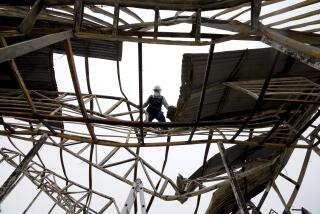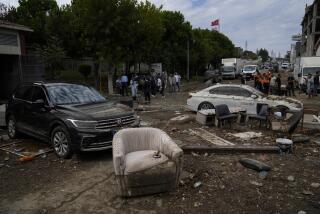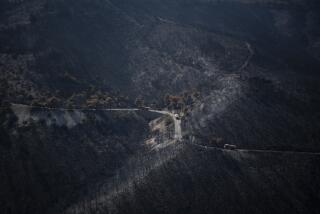Greek prime minister accepts responsibility for high death toll from wildfire
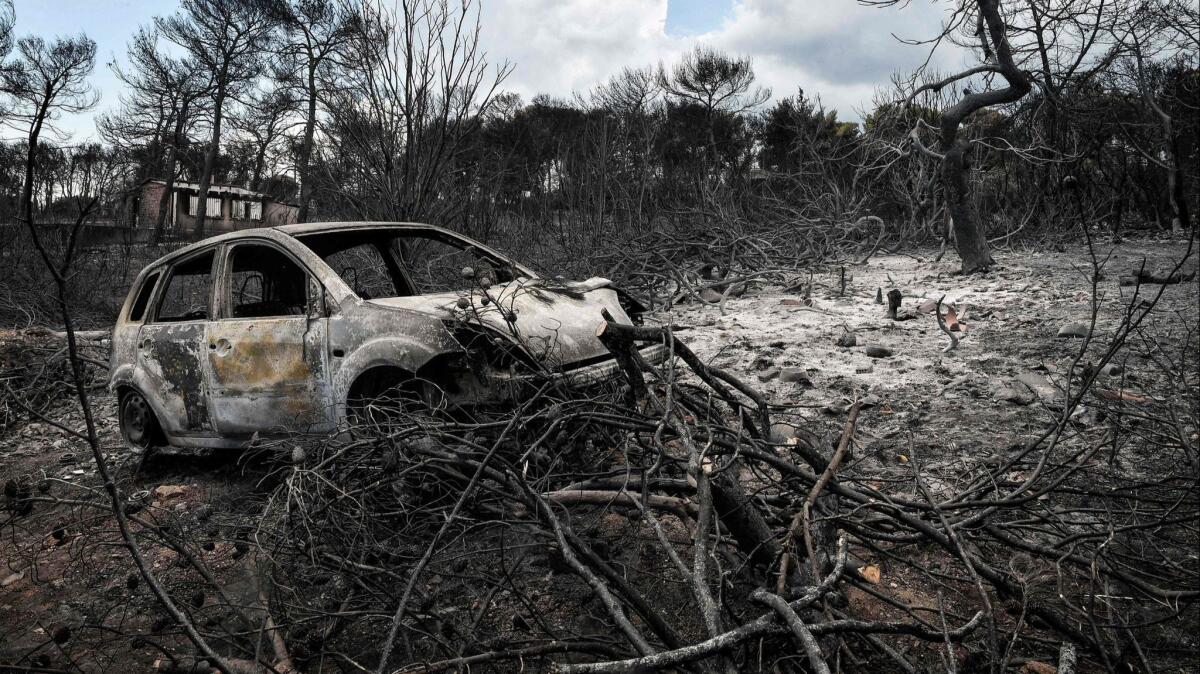
In the wake of the deadliest wildfire in a decade, government officials in Greece wavered on taking responsibility for the more than 80 lives that were lost when a fast-moving fire roared through a popular vacation retreat.
While a ranking government security minister said he could find little fault in how emergency crews responded to last week’s lethal blaze, the country’s prime minister on Friday offered contrition.
“I have called you here today first of all to take full political responsibility for this tragedy in front of my Cabinet and the Greek people,” said Prime Minister Alexis Tsipras, whose government has been criticized for failing to have an adequate evacuation plan for such a disaster. Many perished while trying to outrun the fire, which may have been the work of an arsonist.
Tsipras said he’ll shoulder the political responsibility, but he won’t consider removing anyone from their posts, such as the fire chief, until the search and rescue operation is complete.
Tsipras’ comments came the day after Nikos Toskas, alternate minister for Citizen Protection, who is responsible for Greece’s public security services, told reporters that no major mistakes were made in how officials responded and that, if faced with a similar crisis, they would not change their actions.
“I am trying for reasons of conscience to find the mistakes, but operationally I can’t find major mistakes,” he said.
The wildfire tore through Mati, an upper-middle-class seaside town outside Athens and a popular destination for foreign tourists and nearby residents looking for a quick escape from city life. Many of the houses there are in forested areas outside city limits and were built without permits.
These structures have become a nuisance because it can take decades for the courts to order their removal, said Costas Synolakis, professor of engineering at USC and member of the Academy of Athens.
“What people do is that they hope to hide it by not building roads,” Synolakis said. “Roads are narrow and twisted, and it makes it very difficult to evacuate by car.”
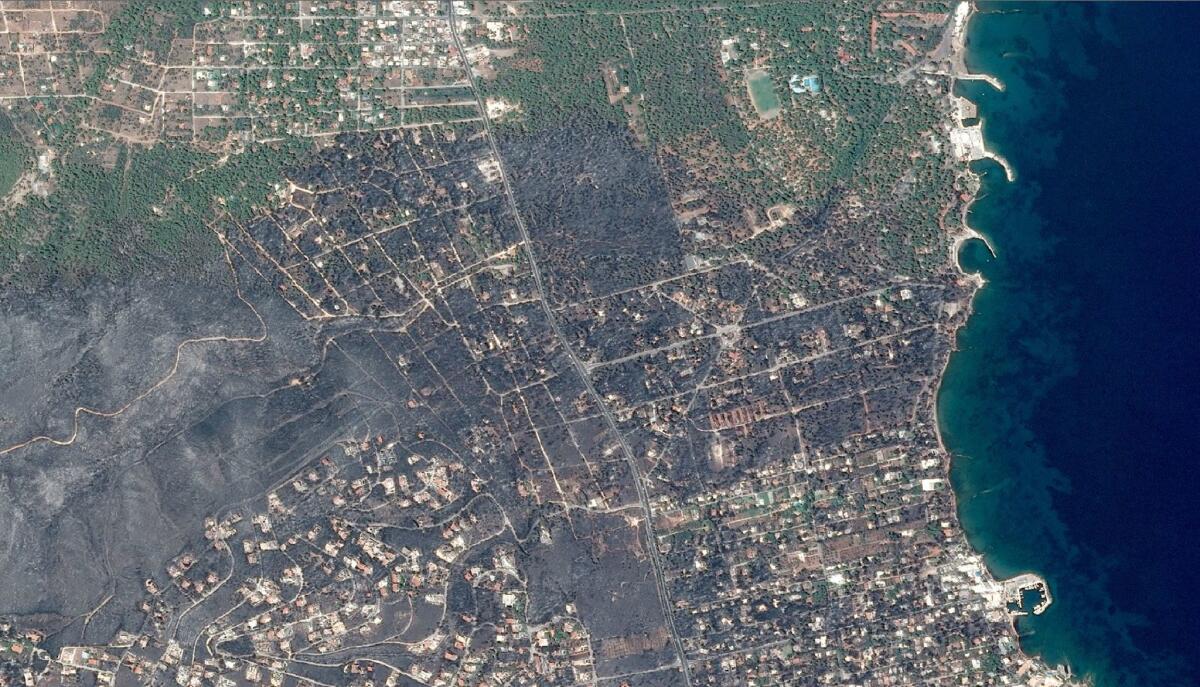
Greek authorities said they would need to come up with a national plan to address decades-old building violations, particularly in Mati.
“An overall redesigning of the town is needed. If things stay as they are, it is as if we are signing an open contract that the same things will happen all over again at some point,” Interior Minister Panos Skourletis said Friday.
Residents are also blaming the high death toll on a lack of pre-disaster planning and failing to have adequate evacuation plans in place.
“Many people who died evacuated last minute by car, but there were no evacuation maps, no pre-disaster planning and no disaster routes,” Synolakis said. “People didn’t know about escape routes. About 1,000 people escaped by sea; others tried to get to the coast but they didn’t know how.”
As the blaze roared toward homes, panic ensued as people tried to flee toward the ocean. But black plumes of smoke made visibility difficult and added to the confusion. Rescue workers said they found the remains of 26 people huddled together near a cliff, as there was no access to the beach below. Others tried to escape by car, but the flames caught up, destroying more than 80 vehicles. Still, hundreds of people did reach the ocean, where they were rescued by coast guard boats.
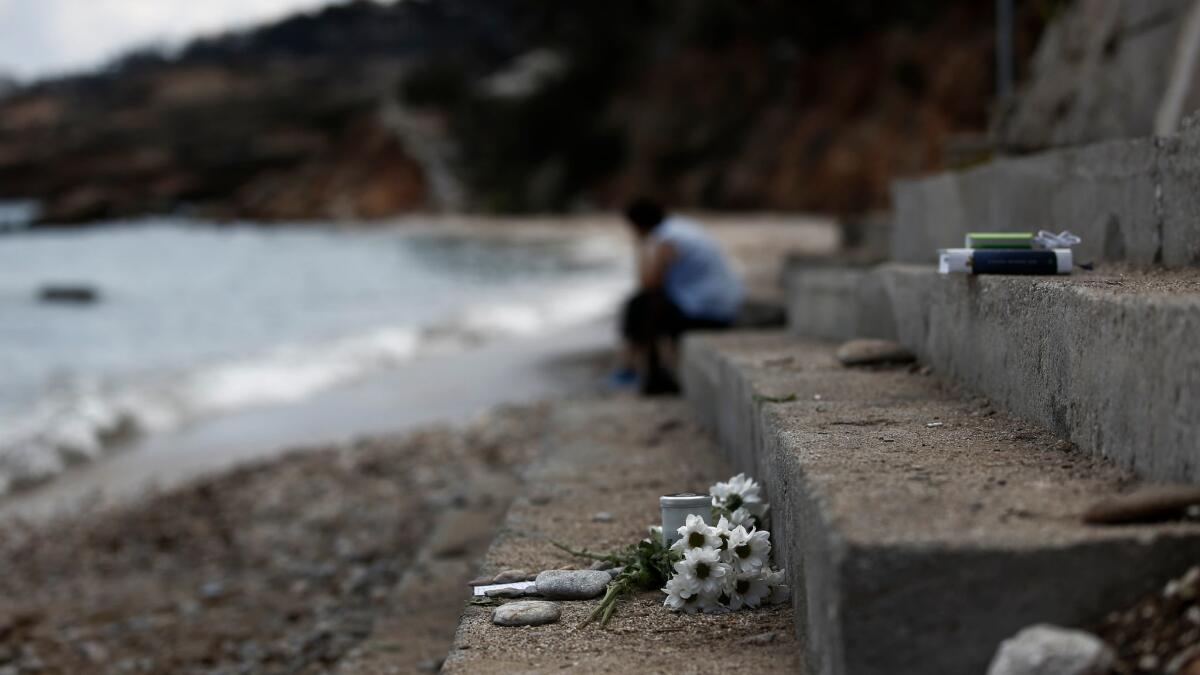
Joanna Lagonika said she has fond memories of Mati. During the summer, the 18-year-old Athens resident travels to the seaside town with her family, where they visit family and friends. Only a few weeks ago Lagonika was there with her mother and sister, lounging at the beach drinking coffee.
“It was very calm. Everyone who lives in Athens goes there on the weekends. It’s a nice place to relax,” Lagonika told The Times. “It’s close to the city, but you feel like you’re on an island. It’s nice to be there.”
Lagonika said she believes the government could have done a better job at informing people to evacuate.
“There must be an escape plan. We didn’t have that, so that was the problem,” said Lagonika, who was not in Mati at the time of the fire. “People like myself and my family who go there, we don’t know the area well, so it would be hard to escape the fire.”
She said her friends in Mati recounted that the minute they saw the flames coming, they ran to the sea and got on a boat to leave. “Thank God their house didn’t burn down. We were so scared.”
Aris Miron, a 28-year-old graduate student from Athens, also blames the high death toll on the lack of an evacuation protocol.
“I’m devastated. The situation affects us even if we didn’t have any family there,” he said. “People in Mati didn’t have any evacuation plans.”
Strong winds reaching 62 mph coupled with scorching heat and drought conditions fueled the fire, said Greek weather forecaster Panos Giannopoulos.
“The fire started at the top of a forest with the help of very strong winds. Many people were trapped and couldn’t find their way to the sea,” he said. “From the start of the fire till the moment it passed was three hours.”
In 2007, Greece experienced a series of deadly wildfires that broke out in the Attica region and killed 84 people.
The lesson from those fires should have been the pressing need for adequate evacuation plans for Greece’s communities, said Demetres Karavellas, general manager of the environmental group WWF Greece.
“Sadly we are witnessing the same horror now,” Karavellas said.
Follow me on Twitter @melissaetehad
Times staff writer Etehad reported from Los Angeles and special correspondent
More to Read
Start your day right
Sign up for Essential California for news, features and recommendations from the L.A. Times and beyond in your inbox six days a week.
You may occasionally receive promotional content from the Los Angeles Times.
